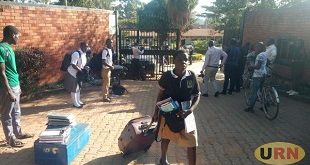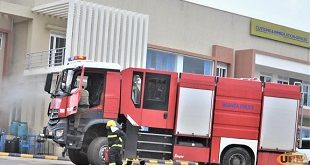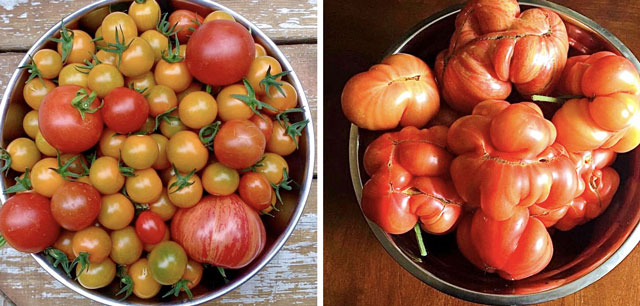
As the world reels from global food supply chain disruptions and extreme weather, this eco-village in Uganda is helping inculcate the importance of sustainable agriculture to local communities, teaching farmers how to grow for a healthier planet.
Jinja, Uganda | BIRD STORY AGENCY | A fresh, earthy aroma fills the air as a symphony of birdsong erupts to usher in a new day in Wakalenge village, in rural Uganda.
Goats frolick playfully, knocking dew off the grass fringing a dirt road meandering to the Eco Mama’s Community Gardens.
Nestled 15km from Jinja town, Wakalenge, a budding eco-village, is free from the toxicity that blights many of the urban centres in the Pearl of Africa: runaway litter and choking fumes.
This rare pristine environment, coupled with lush greenery, is what Eco Mama’s project manager and educator Felix Likami says originally gave the area its distinctive charm, making it the perfect spot for setting up an eco-village.
At first glance, the meshed fence enclosing the community garden gives the impression of ordinary farmland, but a keen look soon reveals something different: a thriving agro-ecology system, replete with a wide variety of crops and herbal medicines.
As Likami explains, after years of communal effort, the soil nursing these crops has been fully rehabilitated and has now recovered from the use of chemical farm inputs and their inevitable environmental damage.
“We have been using methods such as soil stabilisation which involves the addition of immobilising agents to reduce the contaminants’ leachability,” he shares.
In December 2017, Eco Mama’s Uganda acquired 6.3 acres of land in Wakalenge Village to promote sustainable agriculture in the wake of the crippling fallout from climate change.
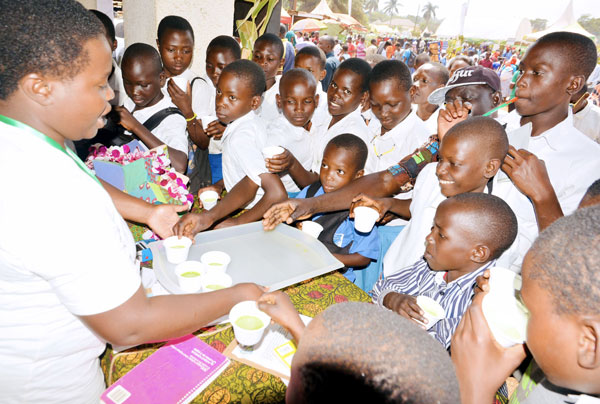
Soon after acquiring the property, a borehole was drilled to provide easy access to clean water for its members and the wider community.
Composting toilets were also built, and a shipping container was moved onto the site, where it has been repurposed and renovated into a classroom, storage and extensive covered outdoor educational space.
Central to the architecture of the Eco Mama’s “green school model” is the practice of sustainable and organic agriculture, with a deep respect for indigenous cultures and customs.
“Individuals and families may choose to make diet and lifestyle changes that benefit the earth and their bodies, inviting the rest of the community to move towards a greater state of health and wellbeing,” the organisation states.
On this day, Eco Mama’s is receiving a new cohort of ‘students’ ranging from young adults to the very old (including “grannies” and “grandpas”) who, after training is completed, will be issued certificates.
They will be expected to hit the ground running once enrolled, joining lecturers to learn about growing food for a better planet.
With modest sunshine this September, they are soon seated outside, under the shade of a makuti (palm leaf) roof, where well-trained agronomists teach attendees everything they need to know about crop management, from tilling the land to planting, harvesting, soil management, cultivation and even sourcing of farm inputs.
Meanwhile, the hands-on practical sessions are conducted in the vast area devoted to nurseries and demonstration farms.
“A total of 60 farmers are organised into four groups. Each is assigned a small piece of land where they carry their demonstration activities,” Likami explains.
“Group one works on Mondays, Group 2 on Tuesdays, Group 3 on Fridays and Group 4 on Saturdays. This is the time when we share information on Grow-Biointensive farming, agroforestry as well as holistic nutrition.”
Grow-Biointensive mini-farming is a wholistic, sustainable farming method.
Eco Mama has also been donating immunity-boosting organic porridge flour to its community members as well as others in need. The flour is formulated from millet, sorghum, sesame seeds, maize, cassava, amaranth and moringa powder. All the organic ingredients are produced from the organisation’s outreach gardens within the community and the flour was distributed far and wide during the height of COVID-19, to help with resilience in the community.
The youths and children enrolled in the program join select workshops that encourage them to develop into holistic farmers and custodians of the environment.
Once in a while, Brandi Payne, Director of International Development for Eco Mama’s Global Community Gardens and a holistic nutrition specialist, travels to the eco-village to lecture.
In 2018, Payne helped to construct the region’s first Earthbag house on the site, hoping it would serve as a model that would be adopted by the communities in Jinja and beyond.
Earthbag construction is an inexpensive building, a sustainable method that uses mostly local soil to create structures which are both strong and can be quickly built.
For Sabwe Steven, a “reformed” agrochemical supplier, life has taken a dramatic turn for the better… man who once ‘contaminated soil’ with chemicals for a living is now leading Eco Mama’s efforts to rehabilitate it.
Working as a crop co-ordinating officer, he is unleashing natural instead of chemical warfare against pests and teaching others how it is done. How? Using some of nature’s own repellents – including pungent aromas.
“Instead of spraying chemicals on sukuma (kale), we are using ash because these insects have spiracles…they stay away since if they don’t breathe they die,” he shares.
“For soft-bodied insects, we use red pepper which kills them upon contact. For insects that smell, we use enhanced garlic and onion smell to repel them, without having to kill them.”
Before joining the organisation, Sabwe suffered an infection on his hand due to agrochemical exposure. He now vows not to backslide.
Juliet Wakesa, who was mentored in holistic nutrition, herbal medicine and bio-intensive farming practices in the last five years, is now a dedicated team member and an integral part of Eco Mama. She travels to various communities around Kitale in Western Kenya teaching women (primarily) how to grow their own food and about the nutritional benefits of the foods they’re growing.
As part of an expanded eco-curriculum, Eco Mama’s Uganda has also educated communities about the cultivation and consumption of Artemisia annua (sweet wormwood) to prevent and treat malaria in East Africa Research in Europe and the US shows that a daily infusion of Artemisia annua interferes with most virus’ ability to replicate.
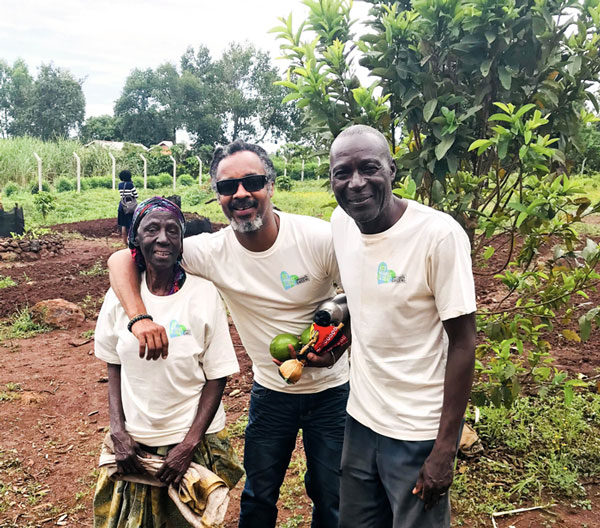
Eco Mama Uganda was co-founded by a couple, Shayna and Adam Abubakar. Adam is a native of Uganda’s lakeside town of Jinja.
While consciously designed to transform farming and save lives in areas hit by climate change through its teaching programs, the local community has its hands firmly on the Eco Mama’s steering wheel. That includes the production of food.
“Two acres have been allocated exclusively for demonstration gardens. With our team of Kenyan and Ugandan facilitators providing training to local community members, our demonstration gardens have been built from the ground up by hands-on certifiable workshops,” Shayna tells bird on a video call.
Both Shayna and Adam (fondly known as Ado) have completed certificates in herbal medicine in the tropics, through ANAMED in Kenya, as well as the Permaculture Design Course offered by Permaculture USA at Langara College in Vancouver, BC; courses which have been incorporated into the offerings at Eco Mama’s Global Community Gardens.
Shayna and Likami met when she was hired to come to Kenya and recruit someone working with a supplements company to train them on holistic nutrition.
Likami was soon engaged to build healthy soils for raising quality food at the eco-village. He holds a bachelor’s degree in natural resource management from Egerton University-Kenya and a diploma in biointensive agriculture. Both areas of study offered crucial value in his quest to empower communities and help them realise the enormous benefits of bio-intensive agriculture.
Shayna and Adam have now moved away from the organisation, allowing the community to drive its growth. They only give support when needed.
“We want to see the community find local solutions to local problems. They need to own the process,” Shayna said.
****
SOURCE: bird story agency
 The Independent Uganda: You get the Truth we Pay the Price
The Independent Uganda: You get the Truth we Pay the Price
